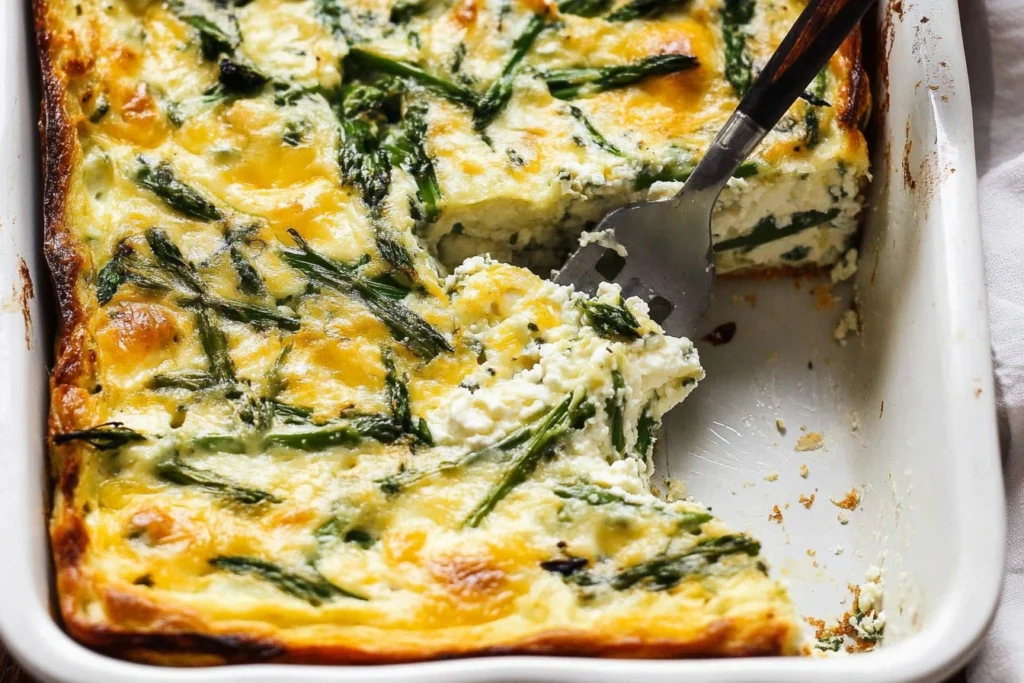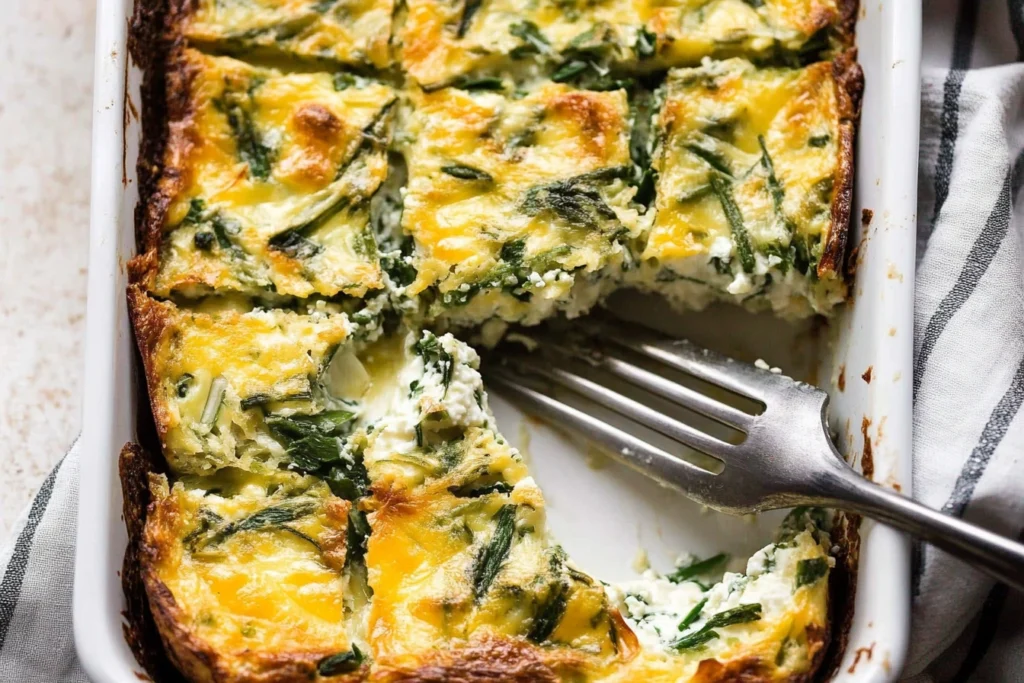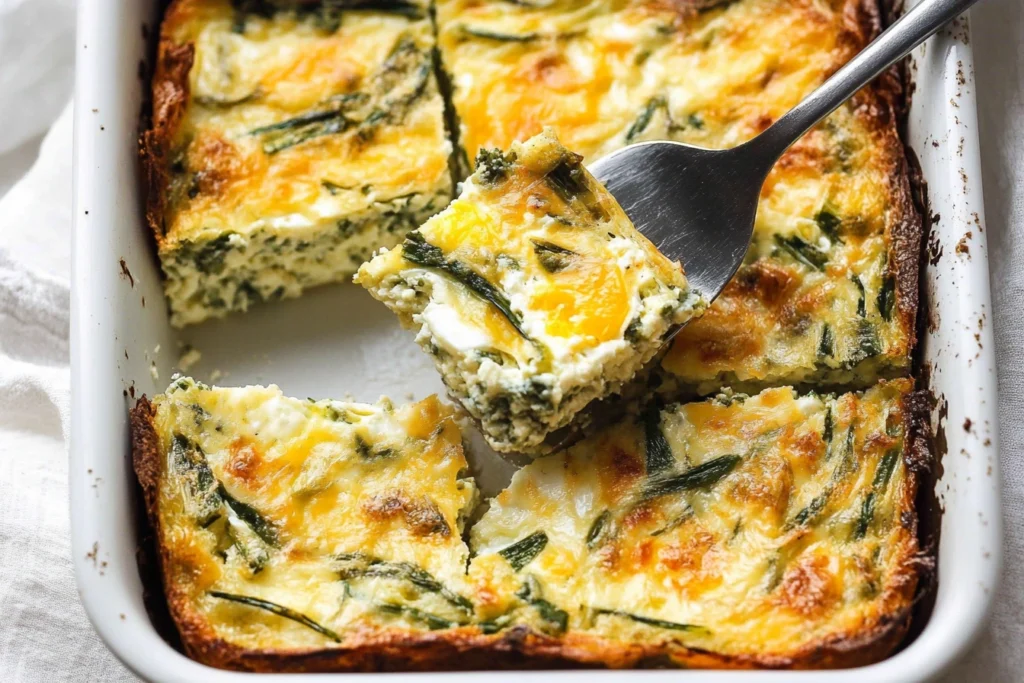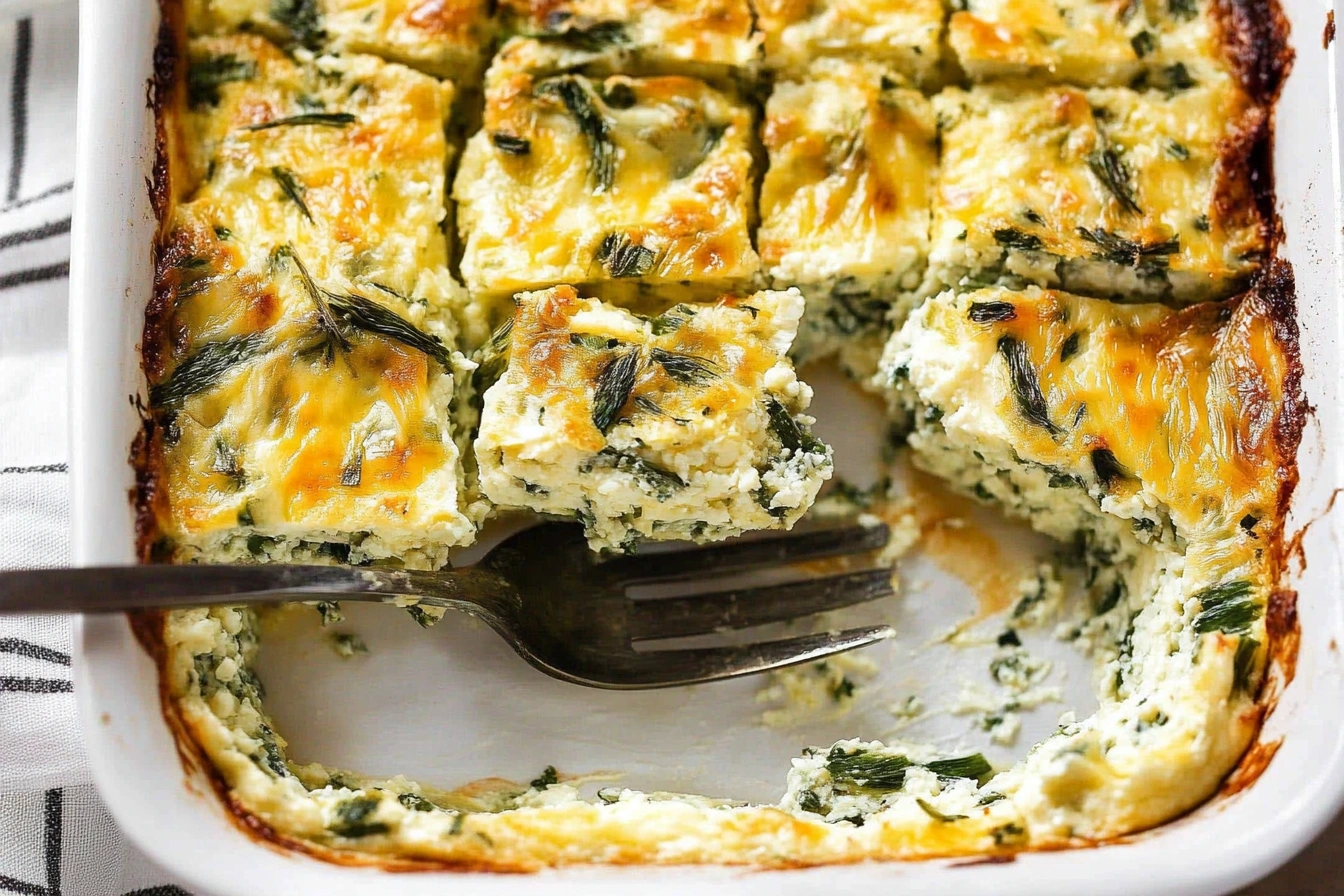Baking cottage cheese eggs can be both simple and satisfying, yet knowing when they’re perfectly cooked can be a challenge. This guide offers practical tips to ensure your dish comes out flawlessly every time. Whether you’re new to this dish or a seasoned cook, we’ll explore visual cues, texture checks, and temperature tips to help you master the art of baked cottage cheese eggs.
Let’s dive right into it and uncover the secrets of doneness while avoiding common pitfalls in the kitchen.
Introduction
Baked cottage cheese eggs are a nutritious, versatile dish that can suit almost any meal, whether breakfast, brunch, or dinner. Yet, many people find themselves asking, how do I know when my baked cottage cheese eggs are done? Getting the timing and texture just right can feel like a challenge, but with a few simple tips, you’ll never have to guess again.
This guide is designed to help you master the art of knowing when your baked cottage cheese eggs are perfectly cooked. Whether you’re relying on visual cues, testing the texture, or using a food thermometer, we’ll show you exactly what to look for. Plus, we’ll share insights into the nutritional benefits of this dish and offer solutions to common problems like watery or overcooked eggs.
From start to finish, you’ll have all the tools and knowledge you need to confidently bake cottage cheese eggs that are moist, flavorful, and cooked to perfection. So, let’s answer the question that’s on your mind: how do I know when my baked cottage cheese eggs are done? Keep reading to find out!

Understanding Baked Cottage Cheese Eggs
What Are Baked Cottage Cheese Eggs?
Baked cottage cheese eggs are a savory, protein-rich dish combining fluffy eggs with creamy cottage cheese for a unique texture and flavor. They’re baked in the oven, rather than fried or scrambled, making them an effortless and healthy option for home cooks. But how do I know when my baked cottage cheese eggs are done? This is a common question, especially for those trying this dish for the first time. The key lies in understanding the distinct characteristics of this recipe, which sets it apart from other egg-based dishes.
What makes baked cottage cheese eggs special is their custard-like consistency. Unlike scrambled eggs, which are soft and loose, or fried eggs with their crispy edges, baked cottage cheese eggs hold their shape while remaining moist and tender. The cottage cheese adds a creamy richness and a tangy flavor that pairs beautifully with the neutral taste of eggs. Plus, you can easily customize the dish with your favorite vegetables, cheeses, or spices for endless flavor combinations.
Nutritional Benefits
When it comes to nutrition, baked cottage cheese eggs pack a powerful punch. The combination of eggs and cottage cheese makes this dish a powerhouse of high-quality protein, providing essential amino acids that fuel your body and support muscle repair. Eggs are also an excellent source of healthy fats and nutrients like vitamin D, while cottage cheese is rich in calcium, phosphorus, and B vitamins.
For those on a low-carb or keto diet, this dish is a dream come true, offering a satisfying meal without the excess carbs. Even if you’re not dieting, baked cottage cheese eggs can be a perfect choice for anyone looking to enjoy a hearty and filling meal that won’t weigh you down. Wondering how do I know when my baked cottage cheese eggs are done to preserve all these nutrients? We’ll cover that in detail later in the guide.
Lastly, this dish is ideal for meal prep. You can bake a batch, portion it into servings, and reheat it throughout the week for a quick, healthy option. Whether you’re feeding a crowd or just making a meal for one, baked cottage cheese eggs offer both convenience and nourishment.
Preparing Baked Cottage Cheese Eggs
Ingredients Needed
To get started, you’ll need a few simple ingredients that you probably already have in your kitchen. Here’s what typically goes into a classic baked cottage cheese egg dish:
- Eggs: The star of the show! Fresh, free-range eggs yield the best flavor.
- Cottage Cheese: Choose full-fat or low-fat based on your preference. Full-fat creates a creamier texture, while low-fat keeps it lighter.
- Seasonings: A pinch of salt and pepper are essential. Optional seasonings like paprika, garlic powder, or Italian herbs can add a pop of flavor.
- Optional Add-Ins: Diced bell peppers, onions, spinach, or shredded cheese can elevate the dish. (Keep it vegetarian-friendly for versatility.)
- Butter or Cooking Spray: To grease the baking dish and prevent sticking.
Step-by-Step Preparation
- Preheat the Oven
Preheat your oven to 350°F (175°C). A well-heated oven ensures even cooking from start to finish. - Prepare the Mixture
In a large mixing bowl, whisk the eggs until slightly frothy. Add the cottage cheese and gently fold them together. Sprinkle in your desired seasonings and optional add-ins. The mixture should have a uniform, creamy consistency. - Grease the Baking Dish
Lightly grease your dish with butter or cooking spray. This step prevents the eggs from sticking and makes serving a breeze. - Pour and Spread Evenly
Pour the mixture into the prepared baking dish. Use a spatula to spread it evenly across the surface to ensure uniform cooking. - Bake in the Oven
Place the dish in the preheated oven and bake for 30–40 minutes. Cooking time may vary depending on the depth of your dish and the oven’s accuracy. - Check for Doneness
Keep an eye on the dish as it nears the 30-minute mark. You’ll know it’s ready when the edges turn a light golden brown and the center is set but still slightly wobbly.
With these steps, you’re set for success! Now that your dish is in the oven, the next part explains how to determine exactly when your baked cottage cheese eggs are done.

Determining Doneness
Visual Indicators
If you’re wondering, how do I know when my baked cottage cheese eggs are done, the first clue lies in their appearance. During baking, the edges will pull slightly away from the dish and take on a light golden-brown hue. The center, on the other hand, should look firm yet retain a slight jiggle. If the surface appears overly wet or shiny, it likely needs more time in the oven.
Another helpful visual cue is the texture of the top. A slightly puffed and smooth surface signals that the eggs are nearly done. Overbaking can cause cracks or a rubbery texture, so it’s crucial to monitor closely during the last 5–10 minutes of baking.
Texture and Consistency
Determining the right texture is another key step in answering the question, how do I know when my baked cottage cheese eggs are done. The texture should strike a balance between creamy and firm. To test, use a knife or toothpick and insert it into the center. If it comes out clean or with just a few moist crumbs, the dish is ready.
The consistency should allow the eggs to hold their shape when sliced while still being tender to the bite. Avoid a runny center, as that indicates undercooking. Conversely, if the eggs are tough or rubbery, they’ve likely been in the oven too long.
Using a Food Thermometer
For absolute certainty, especially if you’re a beginner, a food thermometer is a foolproof tool. Insert the thermometer into the thickest part of the dish. The internal temperature should reach 160°F (71°C) to confirm the eggs are fully cooked. This method removes all the guesswork and ensures your dish is both safe and perfectly prepared.
Using a thermometer is particularly helpful when you’re baking in a deeper dish, as the top might appear done while the center remains undercooked. If you’re asking yourself, how do I know when my baked cottage cheese eggs are done with precision, this tool is your best friend.
Common Mistakes to Avoid
- Skipping Preheating: An oven that isn’t preheated can cause uneven cooking, leaving some areas underdone and others overbaked. Always start with a properly heated oven.
- Adding Too Many Wet Ingredients: Overloading your dish with watery vegetables like tomatoes or zucchini without pre-cooking them can lead to a soggy texture. Sauté these ingredients beforehand to remove excess moisture.
- Overbaking: If you’re worried about how do I know when my baked cottage cheese eggs are done, remember that it’s better to check early and often. Overbaking causes the eggs to dry out, resulting in a rubbery consistency.
- Skipping Rest Time: After removing the dish from the oven, let it rest for 5–10 minutes. This allows the structure to set and makes slicing much easier.
These tips will ensure that your baked cottage cheese eggs turn out perfectly every time. With the right cues and tools, you’ll never have to second-guess the doneness of your dish again.

Frequently Asked Questions (FAQs)
How do you tell if baked eggs are done?
You can tell baked eggs are done by checking the edges and the center. The edges should be firm and slightly golden, while the center should be set but retain a slight wobble. Using a food thermometer is also a reliable method—baked eggs are done when the internal temperature reaches 160°F (71°C).
Why are my cottage cheese eggs watery?
Cottage cheese eggs can become watery if there’s too much moisture in the mix or if the dish isn’t cooked long enough. Using low-moisture cottage cheese and ensuring the baking time is adequate can prevent this issue. Additionally, avoid overloading the dish with watery vegetables like zucchini or mushrooms unless you sauté them first.
How do I know when egg casserole is done?
Egg casserole is done when the edges are golden and the center is no longer jiggly. A knife inserted into the center should come out clean. For an accurate result, check the internal temperature—it should reach 160°F (71°C) to ensure the eggs are fully cooked.
How do you know when dippy eggs are done?
For dippy eggs, timing and texture are key. The whites should be fully set and opaque, while the yolks remain soft and runny. You can gently press on the yolk with a spoon—if it’s tender but holds its shape, it’s ready.
Conclusion
Baking cottage cheese eggs to perfection doesn’t have to be a guessing game. By paying close attention to visual cues, texture, and internal temperature, you can achieve a dish that’s both delicious and satisfying every time. Whether you’re preparing a hearty breakfast or a protein-rich snack, understanding when your dish is done is the key to success.
Remember to avoid common mistakes, like skipping preheating or overloading your dish, and always let it rest for a few minutes after baking. Armed with this guide, you’re well on your way to becoming an expert at cooking baked cottage cheese eggs. So, preheat that oven and enjoy the journey to perfectly cooked goodness!


1 thought on “How Do I Know When My Baked Cottage Cheese Eggs Are Done?”